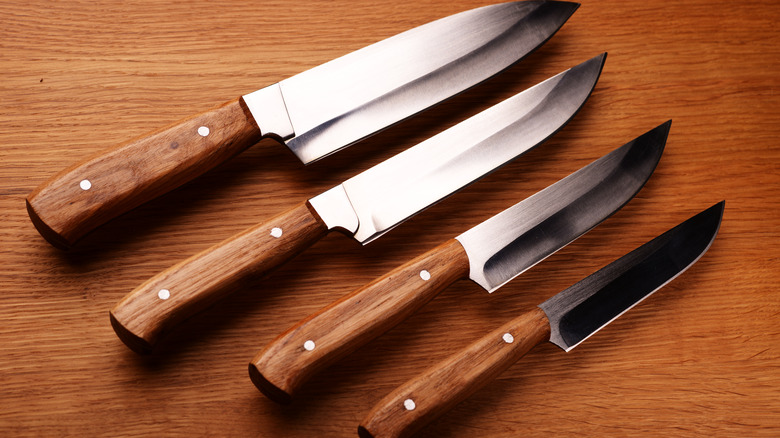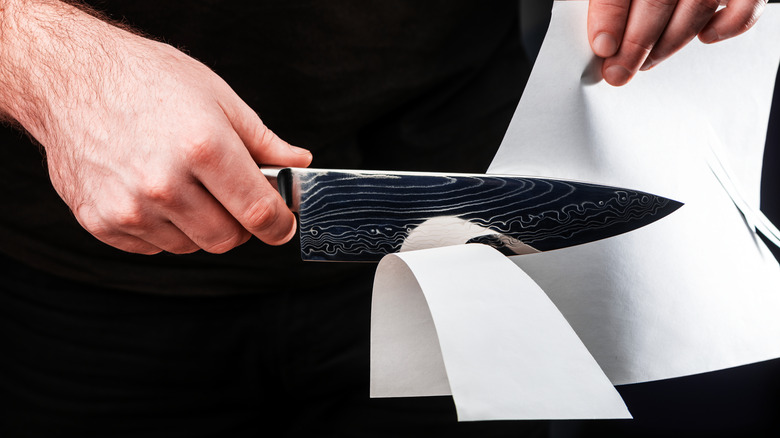How Long Should Your Kitchen Knives Really Last?
It's a common tradition for guests to give kitchen knives as a wedding present, but in some cases, the sharp, sturdy utensils can outlast the marriage. This is because quality knives can literally last a lifetime if cared for properly.
If longevity is what you're after, a selection of higher-end knives is your best bet. You can even purchase these knives from different manufacturers. When picking the appropriate amount of knives, it's important to consider their quality and function rather than if they match the knives you already own. Besides, it won't matter how great your knives look if they end up prematurely dulling. That's where storing knives properly comes into play. Per The Kitchn, you can easily store a new set using a magnetic strip, tape, or rack. Knives can be mounted above the sink, behind the stove, or on empty wall areas in your kitchen. Not only will this keep your fingers safe and your utensil drawer organized, but it will also ensure blades stay sharper longer.
According to Kitchen Knife Guru, it's better to go with a tried-and-true brand instead of a budget option. The blog recommends brands such as Shun, MAC, Global, and Henckels, noting that they usually have lifetime warranties. These manufacturers also have decades woth of knife-producing skills to their credit.
Which knives to buy and how to care for them
Forget about those standard blocks of knives you'll probably never use! According to the Food Network, a simple collection of the following three knives is really all you need: a chef's knife, paring knife, and serrated knife.
A chef's knife (or cook's knife) is perfect for both expert chefs and home cooks. The blade on a chef's knife ranges from 6 to 10 inches. Because of its length and width, this knife is better used for chopping. The paring knife is a sharp miracle worker when it comes to prepping. Its blade is 2 to 4 inches in length. Paring knives are used for smaller-sized tasks, like mincing garlic, cutting an onion, peeling a fruit's skin, or removing an apple's core. With its saw-like surface, a serrated knife is typically used to cut foods that have a different texture on the inside than they do on the outside, like tomatoes, bread, meat, etc.
Per Reddit user niyrex, a really excellent knife that's forged and made of quality steel can cost $150 to $200 and should last forever. On the same Reddit thread, user MistakePointerOuter suggests knives should be professionally sharpened regularly. Although professional chefs tend to do this more frequently, the average home cook can have their knives sharpened once or twice a year. However, the golden rule when it comes to maximizing the lifespan of your knives is to carefully hand wash them instead of putting them in the dishwasher.

